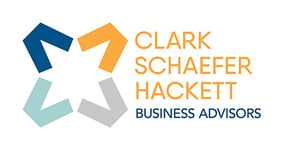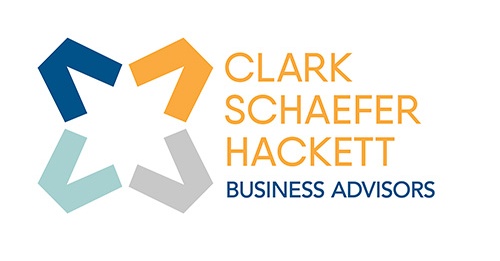Is Your Company Prepared for ACA Reporting?
If your company offers self-insured medical benefits or has 50+ full-time employees, Affordable Care Act (ACA) reporting to the IRS is mandatory. Failure to report or errors in filing can result in steep penalties.
Key takeaways:
-
Companies not meeting the minimum essential coverage requirements or failing to file as an Applicable Large Employer (ALE) face substantial fines.
-
Immediate action is critical—penalties can increase daily if not addressed quickly.
-
Respond to notices, gather the right team, and file necessary forms to mitigate penalty risks.
Stay ahead of ACA reporting requirements. Read our latest article to ensure your company is prepared.
HR Question:
How do I know if my company needs to submit Affordable Care Act (ACA) reporting to the IRS? What are the potential ACA penalty fees if we do it wrong?
HR Answer:
Any employer with self-insured medical benefits or with 50 total Full-Time and Full-Time Equivalent employees is required to report to the IRS. (Not sure if you have 50 Full-Time Equivalent employees? Here’s a guide to do the math.) Failure to report to the IRS could result in two different types of penalty notices, Section 4980H(a) and Section 4980H(b) penalties.
Employers have reported receiving two types of penalty notices
The first type of penalty notice assesses penalty fees for employers who filed in an audited year, but based on the information provided, the IRS does not believe that the employer offered the minimum essential coverage with minimum value to all full-time employees. This could mean that the smallest benefit plan offered to employees was too expensive when compared to their pay. If employers fail to meet this threshold of minimum essential coverage, they could be assessed penalty fees.
The second type of penalty notice that employers have received is a notification that they should have filed as an Applicable Large Employer (ALE), based on their W2s of that year. This means that the company reached the threshold of 50 (or the equivalent of) full-time employees, which triggers a new level of required filings and regulations. This most likely means they should have filed specific forms (the 1094-C and 1095-C), and if they failed to do so, they are being assessed large penalties.
So, what can employers do to potentially reduce the assessed penalties and stop further ACA penalty fees from piling up?
Respond Immediately to ACA Penalty Fees Notifications
The first step – respond without delay! As soon as any notices are received, immediately reach out to the operations manager listed on the notice to let them know that you are actively researching the issue. It is imperative that you do not set this concern to the side. There is nothing more important to take care of in that given moment in terms of cost to your company.
The reason for the urgency in your response time is that the fees will increase exponentially the longer you wait, and they can increase day by day, incurring an astronomical fee. Some employers have seen fees up to $20,000 for missing one form for three years. These fees are typically estimated in the penalty letters, which can be alarming for employers.
Gather Your Team & Take Action
The second step is to connect with your tax department, tax attorney, and your HR team to begin to gather the information necessary to file any 1094-C and 1095-C forms. If you do believe you should have filed and did not, ask for an extension as soon as possible. This will reduce the ongoing daily penalties. If you don’t respond and ask for an extension, it’s possible that a levy may be filed against your organization after thirty days.
If you did not have an HRIS provider filing for you at the time, it can be convoluted to pull the information necessary. These forms often require enrollment data, benefit waivers, and historical work hours, which is why it’s best to include your HR department while tackling this process.
It’s worth noting that if your organization crossed over the fifty-employee threshold mid-year and filed appropriately in the years following, we would encourage you to work with your tax department or attorney to determine if you qualify for transition relief. It is possible to reduce fees if you qualify and file for the missed year.
As organizations continue to implement and interpret the Affordable Care Act, there may be bumps in the road. Be sure to partner with your HR department and attorney to ensure your organization is following guidelines, filing appropriately, and quickly addressing any notices from the IRS.
Special thanks to Mary Mitchell, MBA, SPHR, SHRM-SCP, Certified Healthcare Reform Specialist, for sharing her ACA expertise and contributing to this HR Question of the Week.
Keeping up with ever-changing ACA regulations can feel like an insurmountable task when you have so many other things on your HR plate. If you are unsure if your company should be reporting for ACA, Clark Schaefer Strategic HR can help to assess your employee calculations to determine if it is needed. We can also help you stay on top of regulations relevant to your company, assist with your recordkeeping, and advise you on when to seek legal counsel. Learn more about our HR Compliance & Recordkeeping Services or Contact Us today!
ACA Reporting for 2024: What You Need to Know
As we approach the next ACA reporting period, it's important to stay ahead of significant updates for the 2024 tax year. While there are no major changes to the forms and codes, there are critical updates you should be aware of:
- New electronic filing rule for employers filing more than 10 forms
- Updated affordability percentage – now 8.39% for 2024
- Increased penalties for non-compliance, ranging from $2,970 to $4,460 annually
With deadlines fast approaching, now is the time to ensure your ACA compliance is in order. Read more in our latest article and make sure you're ready for the upcoming reporting season!
HR Question:
I know it’s almost time for the next ACA reporting period. What changes do I need to be aware of for the 2024 tax year?
HR Answer:
You’re right – the ACA (or Affordable Care Act) reporting season is right around the corner! While there are no major changes to the ACA forms and codes for the 2024 tax year, there are some items or updates to be aware of as we head into early 2025. If you’re unsure whether you need to report, check out our article on ACA reporting requirements.
Paper Filing Deadlines
The employee distribution deadline for the 1095-C forms is March 3, 2025.
When it comes to reporting, it’s all about the volume of forms you will be filing. In previous years, employers could file their 1095-C and 1094-C forms in paper format to the IRS by mail as long as they did not exceed 250 forms in total.
However, since 2023’s reporting tax year, the IRS now requires all employers with more than 10 forms to report through electronic methods. This could be done either directly through the IRS’s system or through a third-party provider set up to send to the IRS’s system (such as many HRIS providers). Any corrected forms would also be required to be submitted electronically. This is a service that Clark Schaefer Strategic HR offers to our clients.
For up to 10 forms:
If you have to submit 10 forms or fewer, you may file on paper. The paper filing deadline is February 28, 2025.
E-Filing Deadlines
The deadline for e-filing 1095-C and 1094-C forms to the IRS is March 31, 2025. Keep in mind that there could be additional ACA state reporting requirements for your organization with differing deadlines. The states to pay special attention to are California, New Jersey, Massachusetts, Rhode Island, and the District of Columbia.
Be aware of the full list of form types that are required to be sent to the IRS electronically based on the total number of forms submitted, including:
• Forms 1042–S
• 1094-series
• 1095–B and 1095–C
• 1097-BTC
• 1098, 1098-C, 1098–E, 1098-Q, and 1098–T
• All 1099 series
• Forms 3921 and 3922
• 5498-series
• 8027
• W–2G
• Forms W–2 (Wage and Tax Statement)
• U.S. Territory Forms 499R–2/W–2PR (Withholding Statement (Puerto Rico)
• U.S. Territory Form W–2VI (Virgin Islands Wage and Tax Statement)
There have always been fines attached to late filing with all of these forms. However, the amount has increased to $247.50 per day for each 1094 and 1095-C form for the 2024 reporting tax year (or $2,970 annualized per form).
Updated Affordability Percentage and Penalties
The ACA imposes penalties on Applicable Large Employers (ALEs) that fail to offer affordable healthcare coverage to full-time employees. Penalties for non-compliance can quickly add up.
If an employer’s coverage is not affordable under one of the safe harbors as defined by the IRS and a full-time employee is approved for a premium tax credit for marketplace coverage, the employer may be subject to an employer-shared responsibility payment under Section 4980H(a) or Section 4980H(b).
For the 2024 tax year, the affordability percentage – the maximum amount of an employee’s pay that can be spent on “Employee Only” coverage in order to be considered “affordable” by ACA – decreased from 9.12% to 8.39%. Although there are no major changes to the ACA forms and codes for the 2024 tax year, the IRS has updated the ACA affordability percentage to 8.39%.
In preparation for Open Enrollment, keep in mind the affordability percentage will increase to 9.02% for the 2025 benefit plan year.
Additionally for 2024, the IRS has declared that the penalty under Section 4980H(a) will increase to $2,970 or $247.50 per month, and the penalty under Section 4980H(b) will increase to $4,460 or $371.67 per month.
With these increasing costs associated with noncompliance, it’s important for employers to carefully assess their group health plan offerings to make sure they’re aligning with ACA best practices. It is also essential to ensure that these plans provide comprehensive coverage to full-time employees, including at least one affordable self-only option that meets minimum value benefit requirements.
Thank you to Mary Mitchell, MBA, SPHR, SHRM-SCP, Certified Healthcare Reform Specialist, for contributing to this week’s HR Question of the Week.
Whether you’re new or experienced with ACA reporting, it can be a confusing process. Clark Schaefer Strategic HR is here to help! If you are unsure if your company should be reporting for ACA, we can help assess your employee calculations to determine if it is needed. We can also check your employee data for compliance and electronically file your company’s ACA forms with the IRS on your behalf. Contact us for your ACA reporting needs.
|
Are you struggling to determine whether your company is correctly adhering to reporting requirements of the Affordable Care Act (ACA)? Compliance can be complicated, and each employee you fail to accurately report could result in staggering fines, ranging from hundreds to millions of dollars. However, you are not alone, and our experts are here to help! Join us for our free webinar on November 21 at 1 pm, where Mary Mitchell, ACA Expert and Certified Healthcare Reform Specialist, will answer frequently asked questions and share the information employers need to know to set themselves up for reporting success! |
|
|
images courtesy of Clark Schaefer Hackett and iStock


















